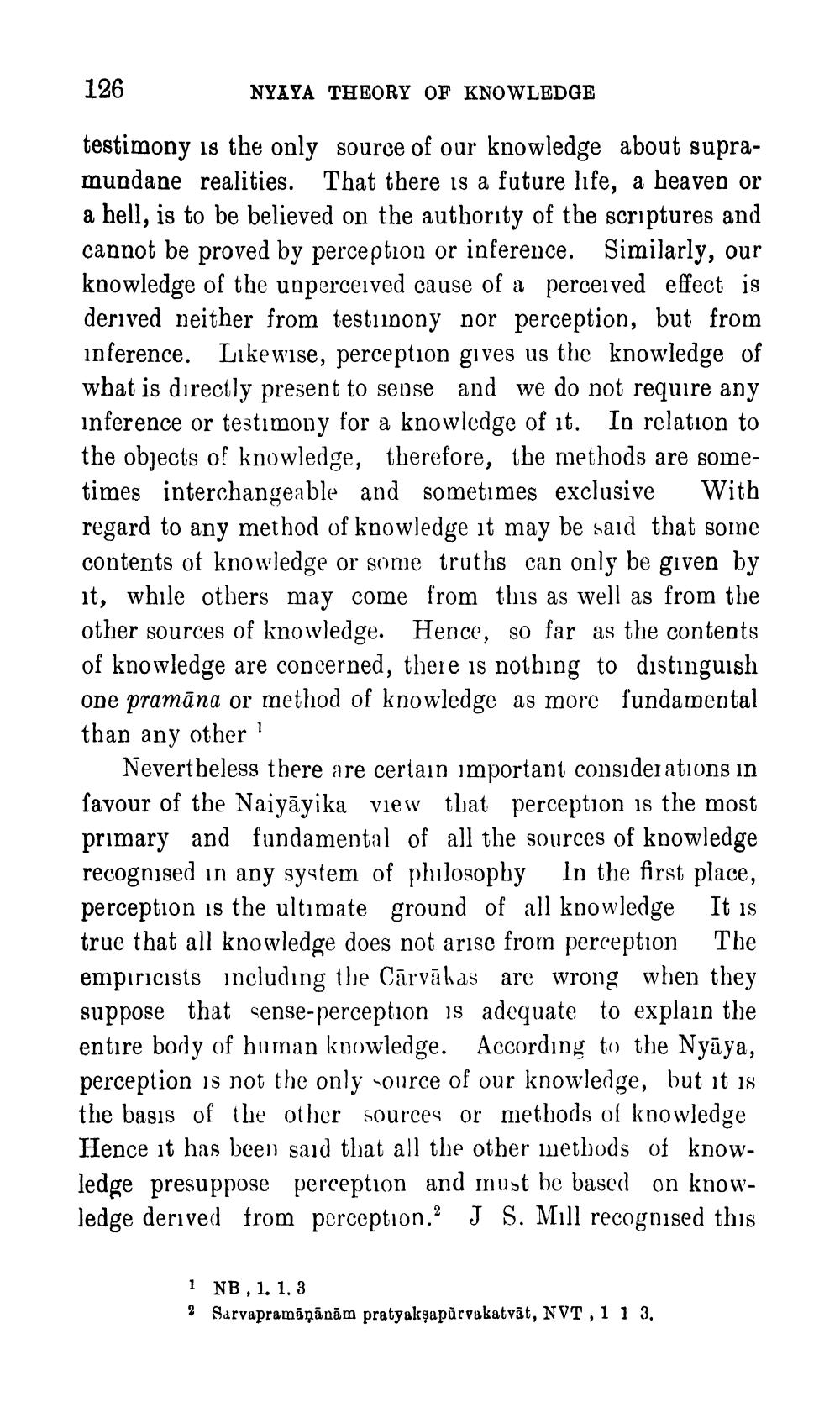________________
126
NYAYA THEORY OF KNOWLEDGE
testimony is the only source of our knowledge about supramundane realities. That there is a future life, a heaven or a hell, is to be believed on the authority of the scriptures and cannot be proved by perception or inference. Similarly, our knowledge of the unperceived cause of a perceived effect is derived neither from testupony nor perception, but from inference. Likewise, perception gives us the knowledge of what is directly present to sense and we do not require any inference or testimony for a knowledge of it. In relation to the objects of knowledge, therefore, the methods are sometimes interchangeable and sometimes exclusive With regard to any method of knowledge it may be said that some contents of knowledge or some truths can only be given by it, while others may come from this as well as from the other sources of knowledge. Hence, so far as the contents of knowledge are concerned, there is nothing to distinguish one pramāna or method of knowledge as more fundamental than any other?
Nevertheless there are certain important considerations in favour of the Naiyāyika view that perception is the most primary and fundamental of all the sources of knowledge recognised in any system of philosophy In the first place, perception is the ultimate ground of all knowledge It is true that all knowledge does not arise from perception The empiricists including the Cārvākas are wrong when they suppose that sense-perception is adequate to explain the entire body of human knowledge. According to the Nyāya, perception is not the only ource of our knowledge, but it is the basis of the other sources or methods of knowledge Hence it has been said that all the other methods of knowledge presuppose perception and must be based on knowledge derived from perception. J S. Mill recognised this
1 NB, 1.1.3 2 Sarvapramāņānām pratyakşapūrvakatvat, NVT,1 1 3.




